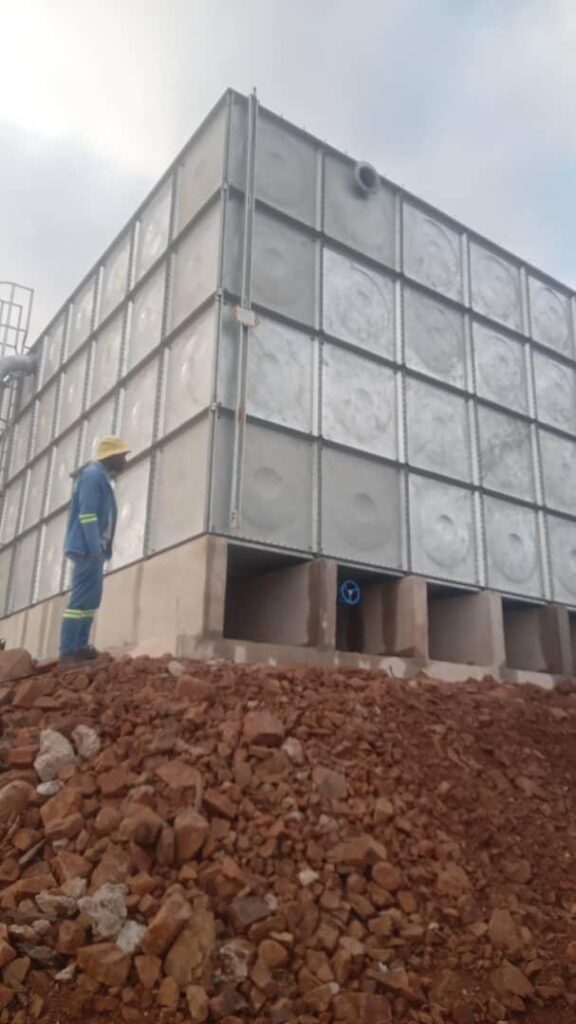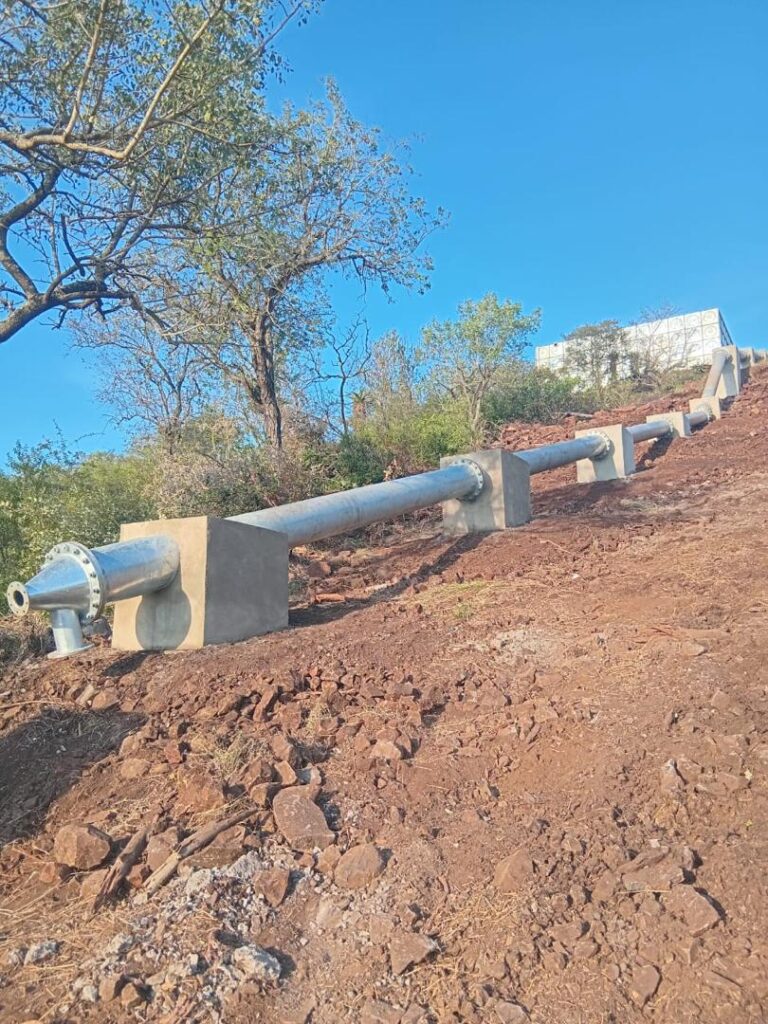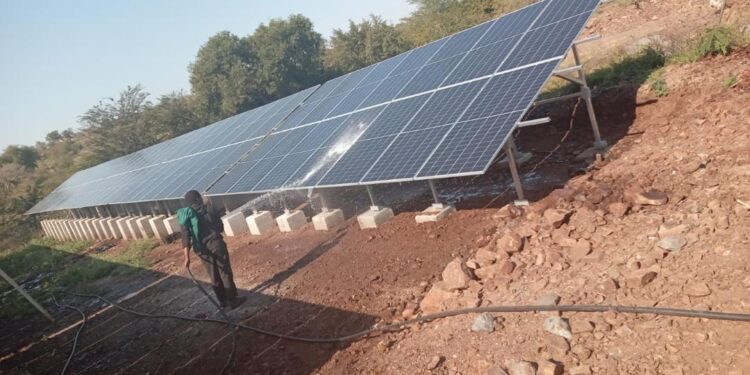After decades of hardship defined by heart-wrenching scenes of residents sharing water sources with livestock and walking over three kilometres to collect unsafe water, a transformative chapter has opened for the people of Sinyamantulwa.
Nearly 3240 residents from 324 homesteads in this remote community under KaMamba Chiefdom are now accessing clean and safe drinking water since May 2025, thanks to a new potable water supply scheme commissioned by the Eswatini Water and Agricultural Development Enterprise (EWADE).
The E53.3 million Sinyamantulwa Potable Water Scheme forms part of six water infrastructure projects valued at over E191.2 million rolled out under Phase II of the Lower Usuthu Smallholder Irrigation Project (LUSIP II). Located in the south-eastern Lubombo region between Matata, Ncandweni and Mcathuvane, Sinyamantulwa was long plagued by acute water shortages, where residents often resorted to digging into dry riverbeds to collect water during winter.
Construction of the scheme was executed by Icon Construction, a company that outshined other tenderers at evaluation and was duly awarded the six-month contract in 2024. The In addition to delivering critical infrastructure on time, the company injected local economic value by employing approximately 63 residents of Sinyamantulwa during the construction phase. Based on the national average of one employed person supporting at least seven dependents, the project indirectly benefited over 441 people, providing a much-needed livelihood boost to the area.
EWADE’s Corporate Communications Manager, Nokwazi Hlophe, described the project as a landmark achievement that goes beyond infrastructure. “To these thousands of emaSwati, access to clean and safe water is no longer just a dream but a reality under LUSIP II,” she said. “We understand that clean water is not only essential for health and dignity, but also foundational to local economic development.”

Hlophe further emphasised that the potable water programme directly contributes to Sustainable Development Goal 6 (Clean Water and Sanitation), which seeks to ensure universal access to safe and affordable drinking water, improve hygiene and sanitation, and sustainably manage water resources.
Sinyamantulwa, marked by its barren landscape filled with thorny aloes and synonymous with hardship, is now beginning to resemble a community of promise. The new water scheme is not only improving public health outcomes but also enabling residents, particularly women and children, to reclaim hours each day previously spent searching for water.
For residents like Raymond Ngcamphalala (64), the project is nothing short of life changing. “We never thought this day would come,” Ngcamphalala said. “For years we lived like forgotten people, sharing dirty water with animals and falling sick. Now we have clean water at our doorstep. We are truly grateful to EWADE and everyone who made this happen.”

According to EWADE’s Potable Water Technician, Menzi Masango, the Sinyamantulwa scheme, along with the five others, is designed with a projected 20-year lifespan. It factors in a 4.4 percent annual population growth rate, ensuring long-term sustainability for future generations.
“What we’ve built here is a forward-looking water system engineered for durability, growth, and community resilience,” Masango said.
The initiative is in line with the Government of Eswatini’s efforts to promote equitable development in rural areas through large-scale agricultural and water infrastructure. Under LUSIP II, access to potable water is expected to act as a catalyst for improved livelihoods, reduced waterborne illnesses, and increased community productivity.
The residents of Sinyamantulwa, once left behind by progress, now have a fighting chance at health, dignity, and economic participation, carried forward by the lifeblood of clean water and the global ambition of achieving SDG 6.











Discussion about this post